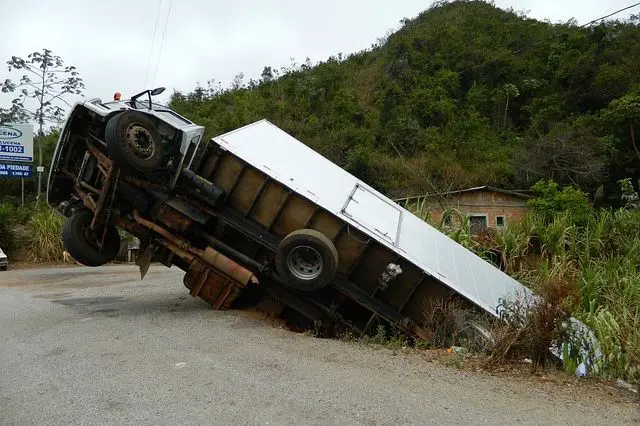What to Do If You’re Injured in a Truck Accident

Have you been involved in a truck accident? The shock, confusion, and pain can feel overwhelming. However, knowing what to do next is crucial for your health and any potential legal action.
This guide will help you navigate the necessary steps following a truck accident, ensuring you receive the medical attention you need, and protect your rights along the way. Stay tuned to equip yourself with this essential knowledge.
Seek Medical Attention
Seeking immediate medical attention after a truck accident is crucial, even if you believe you’re unharmed. The adrenaline rush after an accident can mask injuries, leading you to underestimate their severity.
Some injuries, particularly internal ones, might not manifest symptoms immediately but could lead to serious health complications if left untreated. Medical professionals ensure a thorough evaluation, documenting your injuries which could prove invaluable in any subsequent legal proceedings.
This documentation can help establish a link between the accident and your injuries, essential in personal injury claims. The group of truck accident attorneys will further influence your case, ensuring you receive fair compensation for any damages incurred.
Lastly, a prompt medical check-up can also mitigate any possible negative implications in your insurance claim process, as some insurance companies might doubt the seriousness of your injuries if medical care is not sought immediately.
Call the Police
Notifying the police after a truck accident injury is an essential step. The law often requires you to report serious accidents to law enforcement, particularly those resulting in injury, death, or significant property damage. But beyond legal obligations, a police report serves a critical role in any ensuing insurance or legal disputes. Police officers document the accident scene, collect statements from involved parties and witnesses, and may determine fault based on these facts.
This report can offer an objective, third-party account of the accident, providing crucial evidence if liability becomes contentious. Furthermore, the police can facilitate the safe clearance of the accident scene, reducing the risk of additional accidents. In some cases, they may also help coordinate medical assistance if required. By failing to report the accident, you could compromise your ability to claim compensation or even face legal repercussions.
Don’t Admit Fault
Admitting fault after a truck accident can have significant implications on your legal and insurance outcomes. It’s crucial to remember that determining liability involves a thorough examination of all the facts, circumstances, and applicable laws. A premature admission of guilt could potentially undermine this process. What you perceive as your fault might be a shared responsibility or even entirely the fault of the other party when all factors are considered.
Moreover, such an admission can be used against you in legal proceedings or by insurance companies to reduce or deny your claim. Even a simple apology can be misconstrued as an admission of guilt. Instead, stick to the facts when describing the incident to the police or an insurance adjuster. Let professionals in the field of accident reconstruction, law enforcement, and your legal counsel decide on the question of fault based on all evidence collected.
Gather Information
You should also get your hands on various information and organize it for the case. These are the following pieces:
- Contact information
- Driver information
- Truck make, model, and year
- License plate
- Accident details
- Police report
- Witness statements
- Photographs and videos
- Injuries documentation
- Medical records
- Insurance info
- Employer info
- Road conditions
- Your statement
- Tow and repair records
- Lost wages
- Communication records
- Legal consultation
Information serves as an indispensable tool in building a strong legal case, providing concrete evidence to support your claim. This data aids in accurately determining fault, which directly impacts the awarding of damages. It enables your attorney to construct a comprehensive account of the incident, substantiating your experiences.
Additionally, thorough documentation can expedite insurance claim processes, clarifying the circumstances and consequences of the accident. In essence, the information collected serves as the foundation of your legal and insurance pursuits following a truck accident injury.
Preserve Evidence
Preserving evidence includes physical evidence from the accident scene, such as damaged vehicles and debris, as well as photographs, videos, and witness statements. This evidence can help paint a clear picture of the events leading up to the accident and the aftermath. It’s often necessary to prove negligence or other misconduct on the part of the other party involved.
What’s more, preserving evidence can provide crucial support for your claims about the extent of your injuries and the impact of the accident on your life. Without it, you may face challenges in securing fair compensation for your losses. Remember, once lost, evidence can’t be recreated, so swift action to preserve it is essential.
Contact an Attorney
Legal professionals are well-versed in navigating the complex landscape of personal injury law, ensuring your rights are protected every step of the way. They can help you understand the nuances of liability, evaluate the true value of your claim, and fight for fair compensation. Attorneys are skilled negotiators, adept at handling insurance companies that often seek to minimize payouts.
They can also guide you through potential litigation processes, presenting a robust case on your behalf if your claim goes to court. In essence, seeking legal support after a truck accident injury can maximize your chances of obtaining the compensation you deserve, providing invaluable peace of mind in a stressful situation.
Notify Your Insurance Company
This prompt communication allows you to initiate the claims process, which can help cover medical bills, property damage, and other costs associated with the accident. It’s essential to provide accurate and comprehensive details about the event to facilitate a smooth claims process.
Moreover, most insurance policies require prompt reporting of accidents, and failure to do so may lead to a denial of your claim. Your insurance company can also guide your coverage, deductible, and potential out-of-pocket costs. Lastly, your insurer will often handle communication with the other party’s insurance company, relieving you of this stressful task during a challenging time.
In conclusion, if you find yourself in a truck accident, remember to prioritize your safety, health, and legal rights. Seek immediate medical attention, call the police, avoid admitting fault, gather crucial information, preserve evidence, contact an attorney, and notify your insurance company. By following these steps, you can navigate the aftermath of an accident more smoothly, ensuring that you’re prepared to claim the compensation you deserve.



